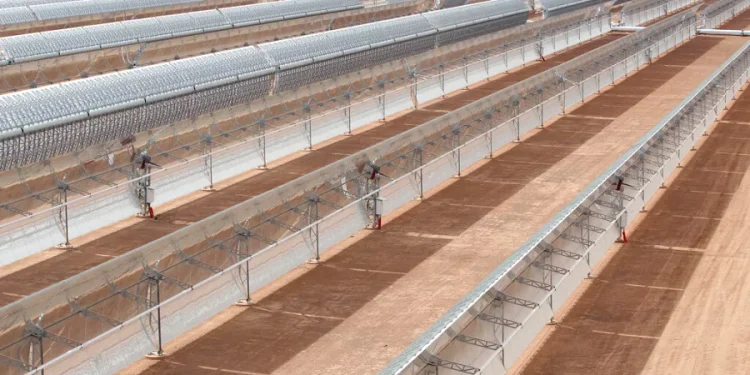The United Kingdom has withdrawn its support from the ambitious Morocco-UK energy project, a $33 billion plan to transmit renewable electricity from North Africa to the UK via nearly 4,000 km of undersea cables. The British Department of Energy Security announced on Thursday that it would no longer back the project, citing “a high level of inherent risk, related to both delivery and security.”
The project, led by British energy firm Xlinks, was expected to supply up to 8% of the UK’s current electricity demand—enough to power around seven million homes. Initiated in 2021, the initiative aimed to harness Morocco’s abundant solar and wind resources and feed electricity directly into the UK grid through the world’s longest subsea power cables.
UK Energy Minister Michael Schanks said the government had assessed its options and concluded there were “more robust alternatives” to focus on, given the taxpayer and consumer risks involved.
While the UK continues its push toward 100% renewable energy by 2030, with natural gas still playing a major role, it is prioritising domestic wind, solar, and energy storage projects, many of which have received partial government funding.
Xlinks, however, has vowed to move forward. Chairman Dave Lewis expressed shock and disappointment at the UK’s decision. “We are extremely surprised and bitterly disappointed,” he said, insisting that the project would still offer lower electricity prices and faster results than nuclear alternatives.
Despite losing UK government backing, Xlinks still retains support from private investors, including TotalEnergies and the Africa Finance Corporation. The company is now exploring alternative pathways to realise the project, which would be the largest interconnector of its kind if completed.
The move highlights growing tensions in Europe over whether to import clean energy from regions like North Africa or invest more heavily in local production. Similar projects are underway in Tunisia and Egypt, with planned connections to Italy and Greece, as the continent seeks to build a flexible, transnational green energy grid.















